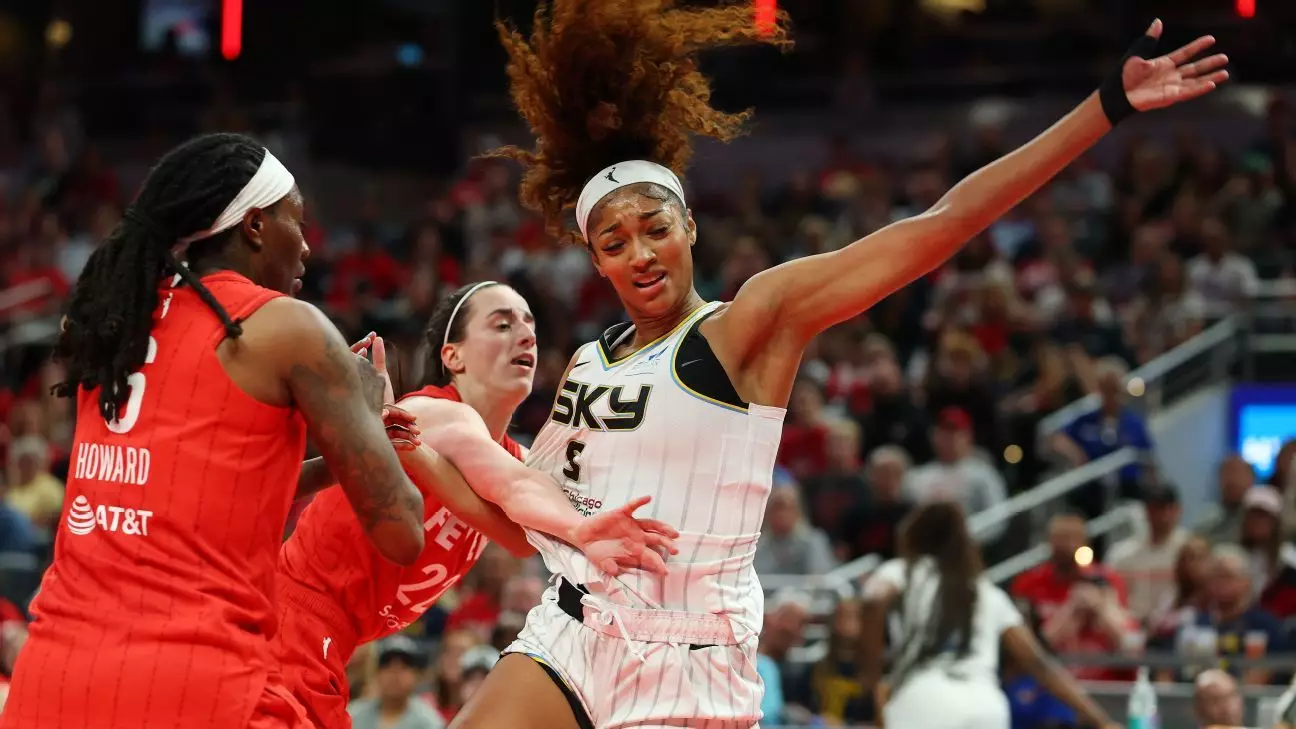In an era where social media amplifies voice and opinion, the WNBA finds itself grappling with a troubling situation that exposes the darker side of competitive sports. Following an intense game between the Chicago Sky and the Indiana Fever, allegations surfaced about fans directing hateful comments towards player Angel Reese. The incident not only highlights issues around the treatment of athletes but also raises broader questions about inclusivity and respect in sports. As emotions ran high during the third quarter, the confrontation between Reese and Caitlin Clark became a focal point, leading to a ripple effect that drew unwarranted negativity towards Reese.
Understanding the dynamics of such incidents is crucial. The WNBA made it clear that they stand firmly against racism and discrimination, announcing an investigation into the event. This move is not just about managing a PR disaster; it represents a crucial stand against a culture that, for too long, has tolerated intolerance. In her statement, WNBA Commissioner Cathy Engelbert emphasized basketball’s potential as a unifying force. However, it becomes increasingly evident that unity cannot exist in the shadow of hate and hostility.
The Incident: More than Just the Game
The alleged fan misconduct occurred amid an on-court scuffle during gameplay—a moment that escalated tensions rather than showcasing sportsmanship. The frustration from the stands culminated in booing and derogatory remarks aimed at Reese, transcending the boundary between competitive spirit and disrespectful behavior. This isn’t merely an issue confined to the bleachers; it is emblematic of a larger societal failure to curb toxic behavior. What should’ve been a simple rivalry game rapidly morphed into a battlefield of animosity against a player simply trying to excel at her craft.
It’s imperative to recognize the duality of the situation: the on-court rivalry can ignite passion, but when that passion devolves into hostility, it undermines the very fabric of sports. Reese’s attempt to confront Clark was a human reaction to a deeply competitive environment. It demonstrates the pressure these athletes endure—not just from their opponents but from their supporters. The WNBA’s efforts to foster a “No Space for Hate” policy must be met with stringent enforcement and community support. Without a united front against hateful rhetoric, these policies risk becoming mere empty slogans.
The Role of the WNBA and Its Players
The response from the league and its players underscores the importance of maintaining respect and dignity within the game. The Women’s National Basketball Players Association’s statement calling for an investigation shows solidarity among the players, recognizing that hateful comments go beyond a single incident; they reflect a societal issue that needs addressing. Both Reese and Clark downplayed the on-court incident in their post-game comments, advocating for a focus on basketball rather than antagonism. Yet this dismissal does not absolve the fans’ behavior or the underlying problems associated with it.
By collaborating in this investigation, the WNBA and its players have an opportunity to set a precedent that promotes accountability and encourages a healthier atmosphere for all involved. A league that prioritizes equity and respect will not only attract fans but also empower players to feel safe and valued in their profession. Women’s sports are often underfunded and underappreciated, and incidents like these threaten to overshadow the achievements of talented athletes who deserve recognition based solely on their performance.
A Call to Action for Fans and Communities
It is crucial that fans take responsibility for their behavior. While passion is an integral part of sports culture, it must never tip into hate. Everyone—fans, players, and organizations—has a role to play in fostering a positive atmosphere. Encouraging supportive cheers for all players, regardless of personal rivalries, can transform the game experience from one of aggression to one of community.
The league’s commitment to investigate these allegations is commendable, but it must be followed through with tangible outcomes. It demands an ongoing dialogue about the inherent responsibilities that come with fandom. The potential for change is within our grasp; all we have to do is choose to embrace it. By confronting toxicity head-on, we can ensure that arenas are filled with energy and positivity, celebrating the game we love rather than allowing hate to drown it out.

